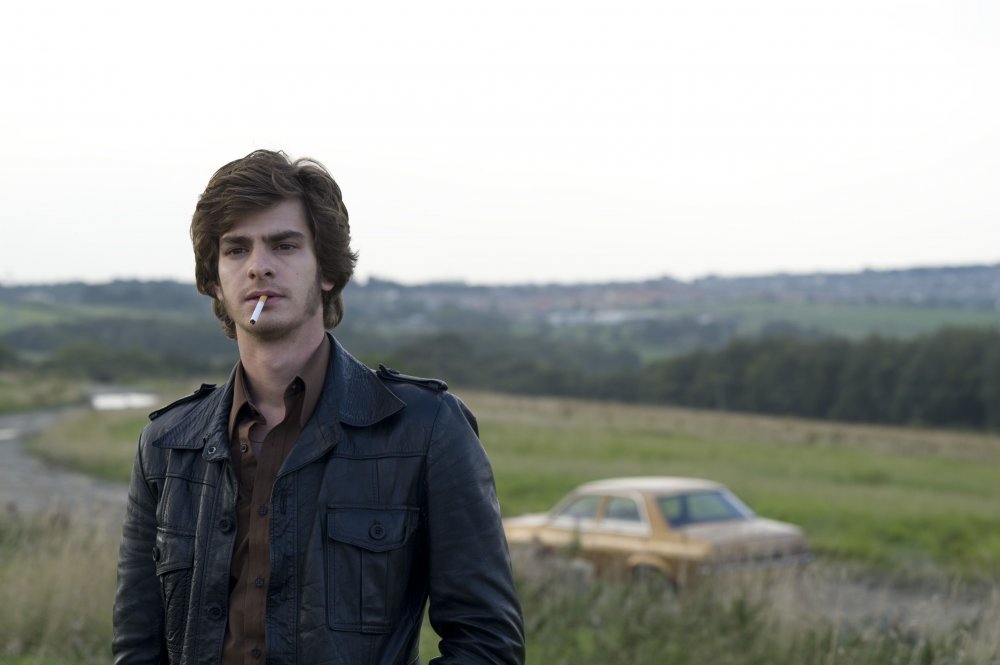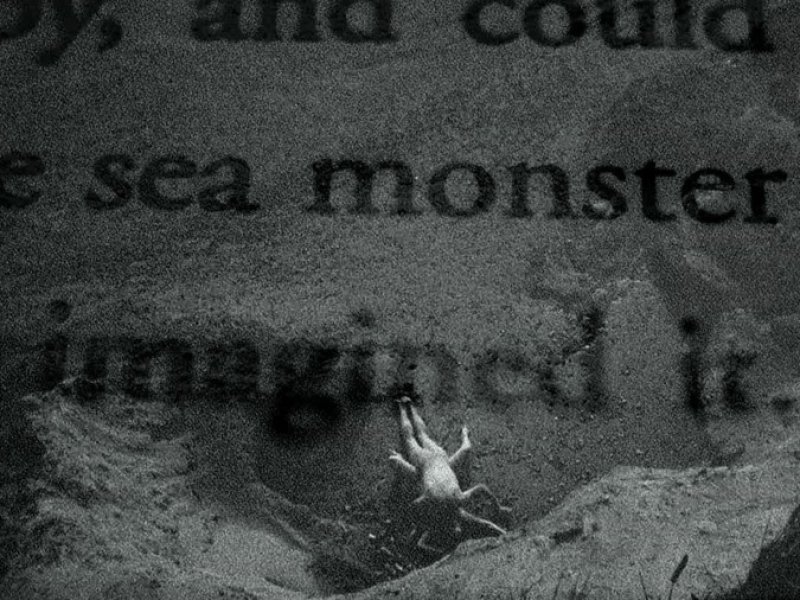The Moonlandingz - Interplanetary Class Classics (2017)
King Krule - The OOZ (2017)
Lone Taxidermist - Trifle (2017)
Slowdive - Slowdive (2017)
LCD Soundsystem - American Dream (2017)
Peter Perrett - How The West Was Won (Domino,2017)
John Maus - Screen Memories (2017)
Colleen — A flame my love, a frequency (Thrill Jockey)
Fever Ray - Plunge (2017)
Nezni Dalibor - U slojevima [Odlican hrcak, 2017]
Liima - 1982 (2017)
Lali Puna - Two Windows (2017)
The Horrors - V (2017)
The Raveonettes – 2016 Atomized (2017)
Four Tet - New Energy (2017)
Blonde Redhead - 3 O'Clock (EP,2017)
Hercules & Love Affair – Omnion (2017)
Otto A. Totland - The Lost (2017)
Peter Broderick - All Together Again (Erased Tapes,2017)
Piano Magic - Closure (2017)
Kevin Morby - City Music (2017)
Woods - Love Is Love (Woodsist,2017)
Methyl Ethel - Everything Is Forgotten (2017)
!!! - Shake The Shudder (2017)
Tim Darcy - Saturday Night (Jagjaguwar,2017)
Web exclusive

I first met Mark Fisher online. I can’t remember exactly when, but I
do know how: through the rapid-fire exchange of ideas and theories that
flourished between music blogs like Matt Ingram’s Woebot and Simon Reynolds’ Blissblog,
around 2005-06. It feels strange that I can’t pinpoint a date, a
specific piece – but perhaps it’s because encountering Fisher’s blog, K-punk,
was like a slow-detonating shock, a challenge that required decoding.
Reading most writers, you look for flashes of insight or a different
angle on a world you’d largely pre-agreed and mutually understood.
Fisher was one of the few contemporary critics I can think of who had
his own unique arrangement for the world – his own constellation of its
contents. He was a creative critic, someone whose world you found
yourself stepping into; and when you stepped out, you never saw the
tired, conventional world in quite the same way.
His critical co-ordinates included (and this is only a selection) David Sylvian, The Parallax View, Metalheadz, Spinoza, John Foxx, M.R. James, The Terminator, Brian Clough, Philip K. Dick, The Caretaker, Deleuze, The Pop Group, Patricia Highsmith, Burial, Tarkovsky, Frederic Jameson, Tricky, Ligotti, Zizek, Junior Boys, H.P. Lovecraft, Sapphire & Steel, Roxy Music, David Peace. And K-punk was the lens through which Fisher focused these disparate elements into a coherent vision. He wrote across film, music, literature, high and low culture. He could illustrate J.G. Ballard and Bataille using Basic Instinct 2, but also find the philosophical implications of The Fall’s Spectre vs Rector. For Fisher – crucially – none of this existed on some flat plane of postmodern equivalence. Criticism was not a low-stakes distraction, and the casual clubbability of much cultural discussion was anathema to him.

Fisher once told me there were always two questions whenever he spoke
to his parents on the phone: what are you having for tea? What are you
watching tonight? In recent years he had become TV critic for New Humanist,
writing perceptively on Westworld, Broadchurch, Benefits Street, The
Americans. At one point, his Saturday night routine involved
livetweeting commentary on The X Factor. Tony Grisoni’s Channel 4
adaptation of David Peace’s Red Riding trilogy (2009-10) – exorbitant,
apocalyptic, and eerily prophetic of later revelations regarding
Yorkshire police – could have been written for K-punk, and was his “TV
event of the decade”.
But film was no less important to Fisher’s worldview. In 2009, Zero Books, an imprint Fisher set up with publisher Tariq Goddard, published his first book. A slim volume called Capitalist Realism, arriving in the aftermath of the financial crisis and in time for the student protests of 2010, it went on to sell over 10,000 copies. It argued against the way that capitalism had become baked into cultural thinking as the absolute ground on which all political possibilities could be imagined, and diagnosed the way in which mental health had been ‘privatised’, conceived as the individual’s fault. But turn to its very first page, and Capitalist Realism opens with a reflection on Alfonso Cuaron’s Children of Men (2006), and the eerie plausibility of its managerial dystopia, brought about not by external disaster but liberal democracy’s limitations. Film recurs throughout the book: Michael Mann’s Heat (1995), Mike Judge’s Office Space (1999), the Bourne films, Peter Weir’s The Truman Show (1998). Fisher’s earliest articulations of the concept came from his reflections on Christopher Nolan’s Batman Begins on K-punk. His most recent book The Weird and the Eerie – published in January by Repeater Books – discusses Tarkovsky, Kubrick and Nolan’s Interstellar (2014).

Cinema, this complex negotiation of corporate capital and audience
expectations, provided fertile ground for Fisher’s ability to decrypt
political conspiracy and diagnose cultural symptoms. His readings could
be thrillingly against-the-grain: X-Men: Last Stand
(2006) for example, “dares to take itself seriously, avoiding the bad
reflexivity of Po-Mo in favour of an unscreened exploration of a
mythos”. Its comic-book unreality, versus the pompous maturity of the
rebooted Batman, is its strength: “This is not a film that tries to be
‘psychologically realistic’. No, it is a film about the Real, that which
we flee from when we awake from a dream.” Fisher might have been
expected to champion Wall-E
(2008), a dystopian depiction of an Earth literally choked by mountains
of garbage with an unmistakable critique of corporate power. But he
used it to draw out the limits of ethical consumerism,
and the way in which it turns dissent into product, arguing that
Hollywood’s persistent anti-corporate theme was merely an escape valve
for political pressure; capital profiting from its own critics, while
sending audiences home with their consciences sated.
Writing for Sight & Sound in 2011 on Grant Gee’s Patience (After Sebald), Fisher couldn’t hide his frustration with W.G. Sebald as a figure of mild, enervated resignation, exiled by nostalgia from the thrilling modernism of post-war culture. Perhaps he also took it personally: Sebald depicted Fisher’s beloved Suffolk – his childhood holiday destination, and home in later life – as a drab, belated place, drained of life and possibility. For Fisher it was a numinous place, charged with eerie energy, as depicted in his favourite M.R. James stories. But Sebald was also too mild stylistically for Fisher, whose preferred mode was polemic; so much of his work was charged with political animus. The pressure of the political was inescapable; as he wrote of Patrick Keiller’s Robinson in Ruins for Sight & Sound in November 2010, “in England, a claustrophobic country that long ago enclosed most of its common land, there is no landscape outside politics.” Fisher was haunted by the dream of a kind of popular, public modernism that he felt had been steadily enclosed and privatised.

This intensity and this pressure could make Fisher seem a fearsome
figure online. But when he joined the staff of the Wire magazine in 2007
I got to know him as a gentle, warm and very funny friend. For
a critic, Fisher had profoundly creative instincts: not just in the way
that he dreamt up neologisms, and made K-punk a project in
world-building. He wanted to build networks and connections all the
time: a positive conspiracy, an interventionist nexus formed from
writers, bloggers, academics, critics and anyone else with the time to
send him an email. As a graduate student at Warwick in the late 1990s,
Fisher had become a catalysing figure at the university’s Cybernetic Cultural Research Unit,
an unofficial formation of academics such as Nick Land, Sadie Plant and
Kodwo Eshun theorising the wilder possibilities offered by new
technologies, drugs and media. He literally built a network in 2004,
founding an online forum called Dissensus
with Matthew Ingram. But he also directly encouraged countless other
writers, including many of those who challenged him most fiercely. Zero
published the first books by Owen Hatherley, Nina Power, Carl Neville,
Agata Pyzik and dozens more. I can still remember the urgency of his
texts and emails when we put together a Zero collection of Michael Jackson essays in 2009, or set up a group blog for thoughts on the 2010 World Cup, which quickly spiralled, attracting contributors and links from all over the world.
Mark always had plans and projects. A book on England’s football culture (he was in the Nottingham Forest end during the Hillsborough disaster); a reckoning with the 1960s counter-culture he had always rejected, to be titled Acid Communism; a Soundings column for Sight & Sound. Action clearly, was one of his defences against the depression which eventually overwhelmed him in January this year. In February 2006 he wrote on K-punk of the “optimism of the act”: “In particularly acute cases of depression, it is recognised that no verbal or therapeutic intervention will reach the patient. The only effective remedy is to do things, even though the patient will, at that time, believe that any act is pointless and meaningless. But ‘going through the motions’ of the act is an essential pre-requisite to the growth of belief ‘in the heart’. Much as Pascal famously argued in his Wager, belief follows from behaviour rather than the reverse. Similarly, the only way out of cultural depression like now is to act as if things can be different.”

Mark Fisher, writer, critic and cultural theorist
His critical co-ordinates included (and this is only a selection) David Sylvian, The Parallax View, Metalheadz, Spinoza, John Foxx, M.R. James, The Terminator, Brian Clough, Philip K. Dick, The Caretaker, Deleuze, The Pop Group, Patricia Highsmith, Burial, Tarkovsky, Frederic Jameson, Tricky, Ligotti, Zizek, Junior Boys, H.P. Lovecraft, Sapphire & Steel, Roxy Music, David Peace. And K-punk was the lens through which Fisher focused these disparate elements into a coherent vision. He wrote across film, music, literature, high and low culture. He could illustrate J.G. Ballard and Bataille using Basic Instinct 2, but also find the philosophical implications of The Fall’s Spectre vs Rector. For Fisher – crucially – none of this existed on some flat plane of postmodern equivalence. Criticism was not a low-stakes distraction, and the casual clubbability of much cultural discussion was anathema to him.

The Red Riding trilogy: the ‘TV event of the decade’
But film was no less important to Fisher’s worldview. In 2009, Zero Books, an imprint Fisher set up with publisher Tariq Goddard, published his first book. A slim volume called Capitalist Realism, arriving in the aftermath of the financial crisis and in time for the student protests of 2010, it went on to sell over 10,000 copies. It argued against the way that capitalism had become baked into cultural thinking as the absolute ground on which all political possibilities could be imagined, and diagnosed the way in which mental health had been ‘privatised’, conceived as the individual’s fault. But turn to its very first page, and Capitalist Realism opens with a reflection on Alfonso Cuaron’s Children of Men (2006), and the eerie plausibility of its managerial dystopia, brought about not by external disaster but liberal democracy’s limitations. Film recurs throughout the book: Michael Mann’s Heat (1995), Mike Judge’s Office Space (1999), the Bourne films, Peter Weir’s The Truman Show (1998). Fisher’s earliest articulations of the concept came from his reflections on Christopher Nolan’s Batman Begins on K-punk. His most recent book The Weird and the Eerie – published in January by Repeater Books – discusses Tarkovsky, Kubrick and Nolan’s Interstellar (2014).

Children of Men (2006)
Writing for Sight & Sound in 2011 on Grant Gee’s Patience (After Sebald), Fisher couldn’t hide his frustration with W.G. Sebald as a figure of mild, enervated resignation, exiled by nostalgia from the thrilling modernism of post-war culture. Perhaps he also took it personally: Sebald depicted Fisher’s beloved Suffolk – his childhood holiday destination, and home in later life – as a drab, belated place, drained of life and possibility. For Fisher it was a numinous place, charged with eerie energy, as depicted in his favourite M.R. James stories. But Sebald was also too mild stylistically for Fisher, whose preferred mode was polemic; so much of his work was charged with political animus. The pressure of the political was inescapable; as he wrote of Patrick Keiller’s Robinson in Ruins for Sight & Sound in November 2010, “in England, a claustrophobic country that long ago enclosed most of its common land, there is no landscape outside politics.” Fisher was haunted by the dream of a kind of popular, public modernism that he felt had been steadily enclosed and privatised.

Patience (After Sebald) (2011)
Mark always had plans and projects. A book on England’s football culture (he was in the Nottingham Forest end during the Hillsborough disaster); a reckoning with the 1960s counter-culture he had always rejected, to be titled Acid Communism; a Soundings column for Sight & Sound. Action clearly, was one of his defences against the depression which eventually overwhelmed him in January this year. In February 2006 he wrote on K-punk of the “optimism of the act”: “In particularly acute cases of depression, it is recognised that no verbal or therapeutic intervention will reach the patient. The only effective remedy is to do things, even though the patient will, at that time, believe that any act is pointless and meaningless. But ‘going through the motions’ of the act is an essential pre-requisite to the growth of belief ‘in the heart’. Much as Pascal famously argued in his Wager, belief follows from behaviour rather than the reverse. Similarly, the only way out of cultural depression like now is to act as if things can be different.”


